Königsberger Klopse
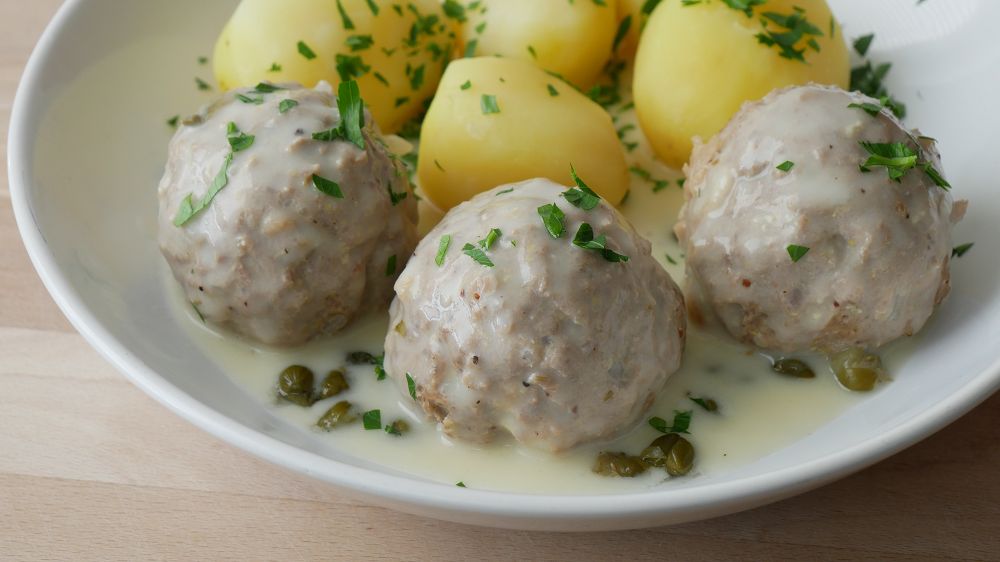
Königsberger Klopse is one of the most famous dishes in Germany. As the name states, it originated from the historic city in Prussia, which is nowadays known as Kaliningrad in Russia. In essence, Königsberger Klopse is a dish that consists of meatballs in a lemon caper sauce, which are often served with potatoes on the side. You can try this delicious dish at our Hamburg spot Casse-Croûte or make it yourself, a recipe for this dish can be found at ichkocheheute.
Berliner

These delicious looking donuts are called various names, depending on the region. One of the most common names is Berliner, named after Germany’s capital and its city of origin. Berliner are pancakes/donuts that are often filled with strawberry jam and then deep-fried. A delicious treat that almost everyone loves! You can find Berliner in every bakery in Germany.
Lübecker Marzipan
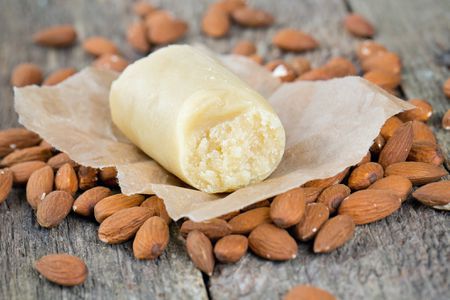
Sauerbraten
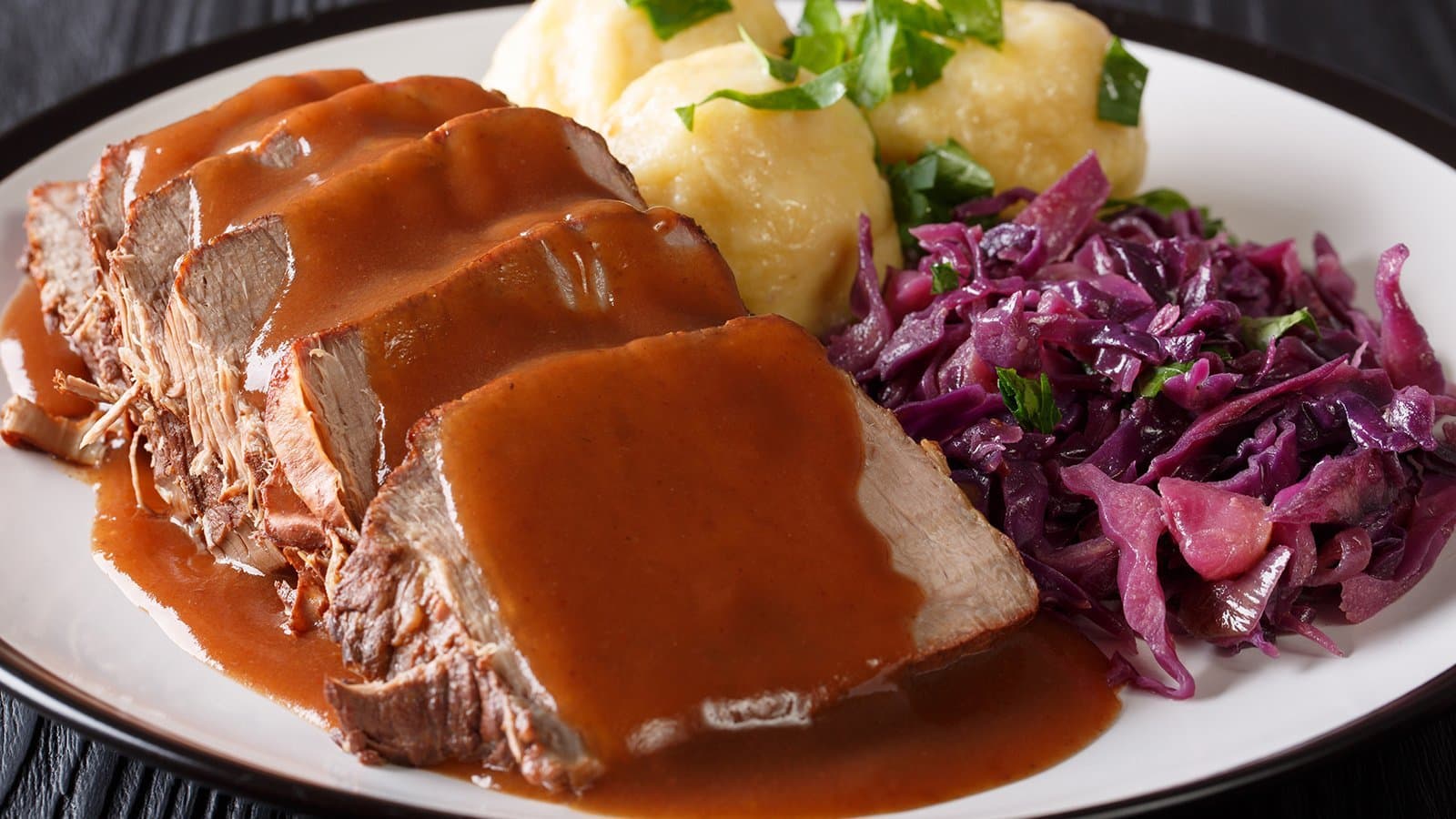
Moving towards Central Germany, Sauerbraten is a famous national dish that has originated from the region called Rhineland. Sauerbraten is a roast meat in a sweet and slightly tard sauce. Most commonly, it is served with red cabbage and potatoes on the side. Yes, Germans love their potatoes. An authentic recipe can be found at gutekueche.de.
Frankfurter Grie Soß
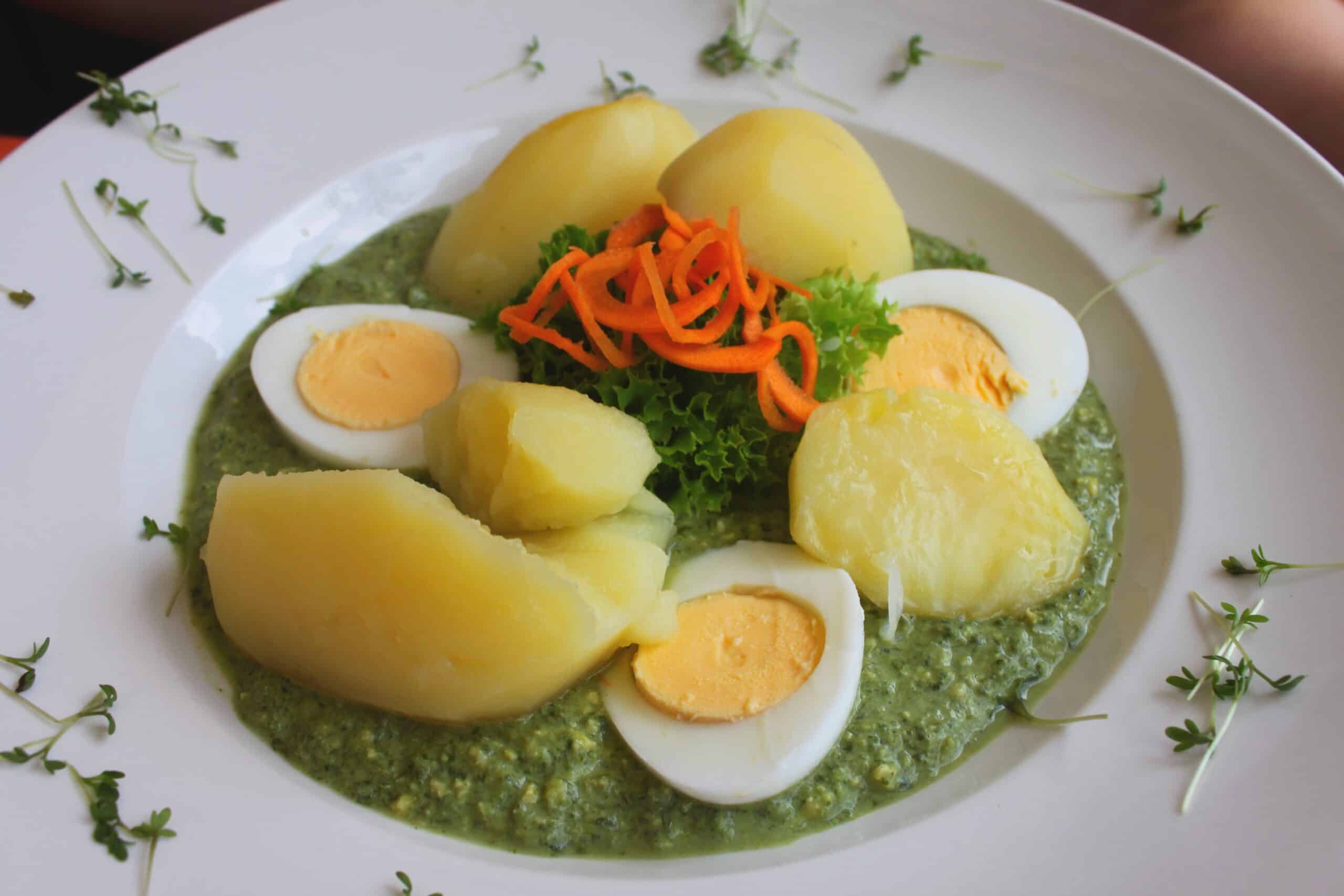
Himmel und Erde
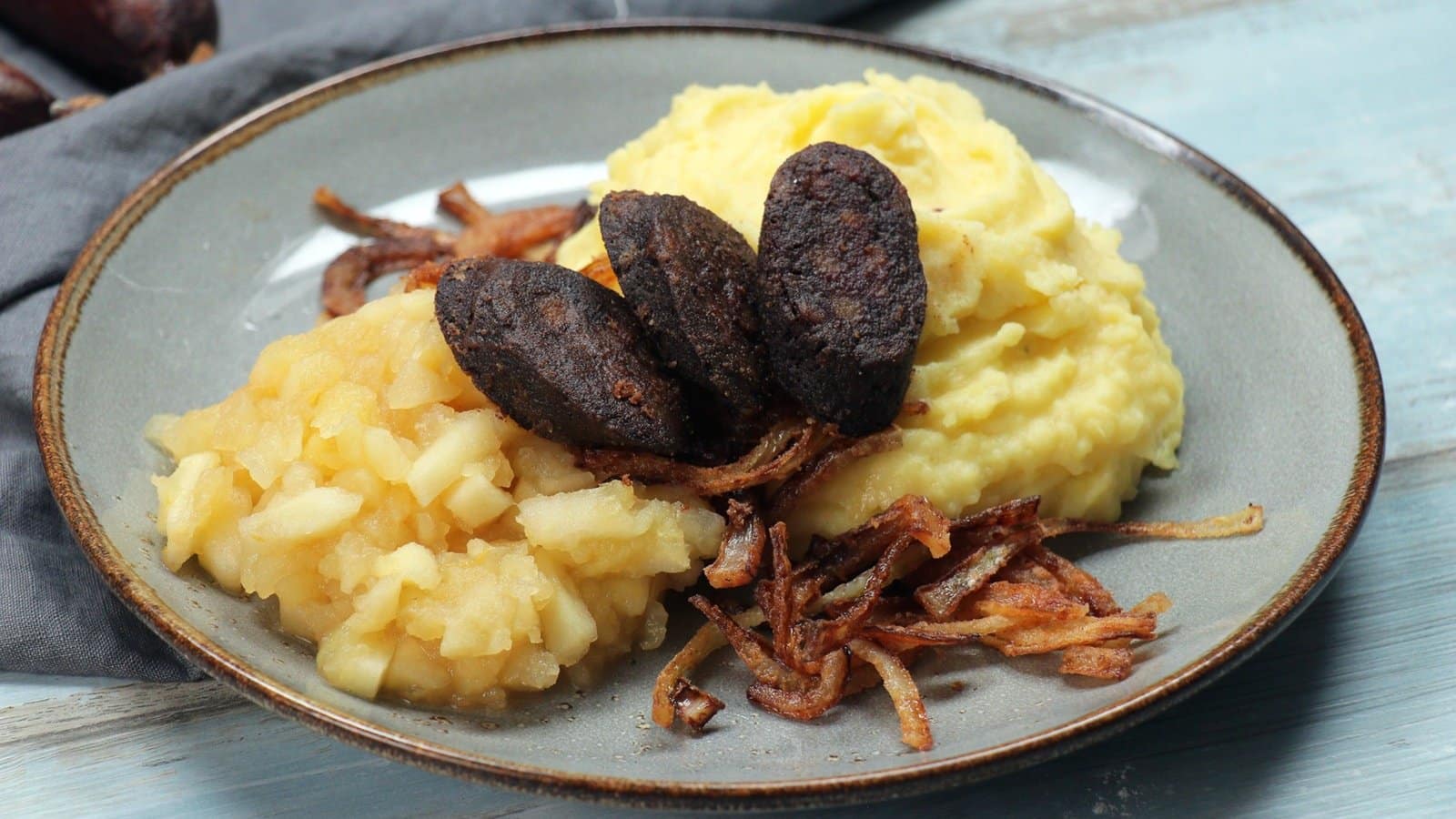
What makes this dish from Central Germany so special is most likely its name “Himmel und Erde”, which is literally translated into “Heaven and Earth”. A popular dish in Cologne, Himmel und Erde comes with four components: blood sausage, mashed potatoes, apple sauce, and fried onions. What sounds like a crazy combination is actually a very delicious dish that is contrasting in flavor and texture. Don’t knock it until you’ve tried it!
Schwarzwälder Kirschtorte

Weißwurst
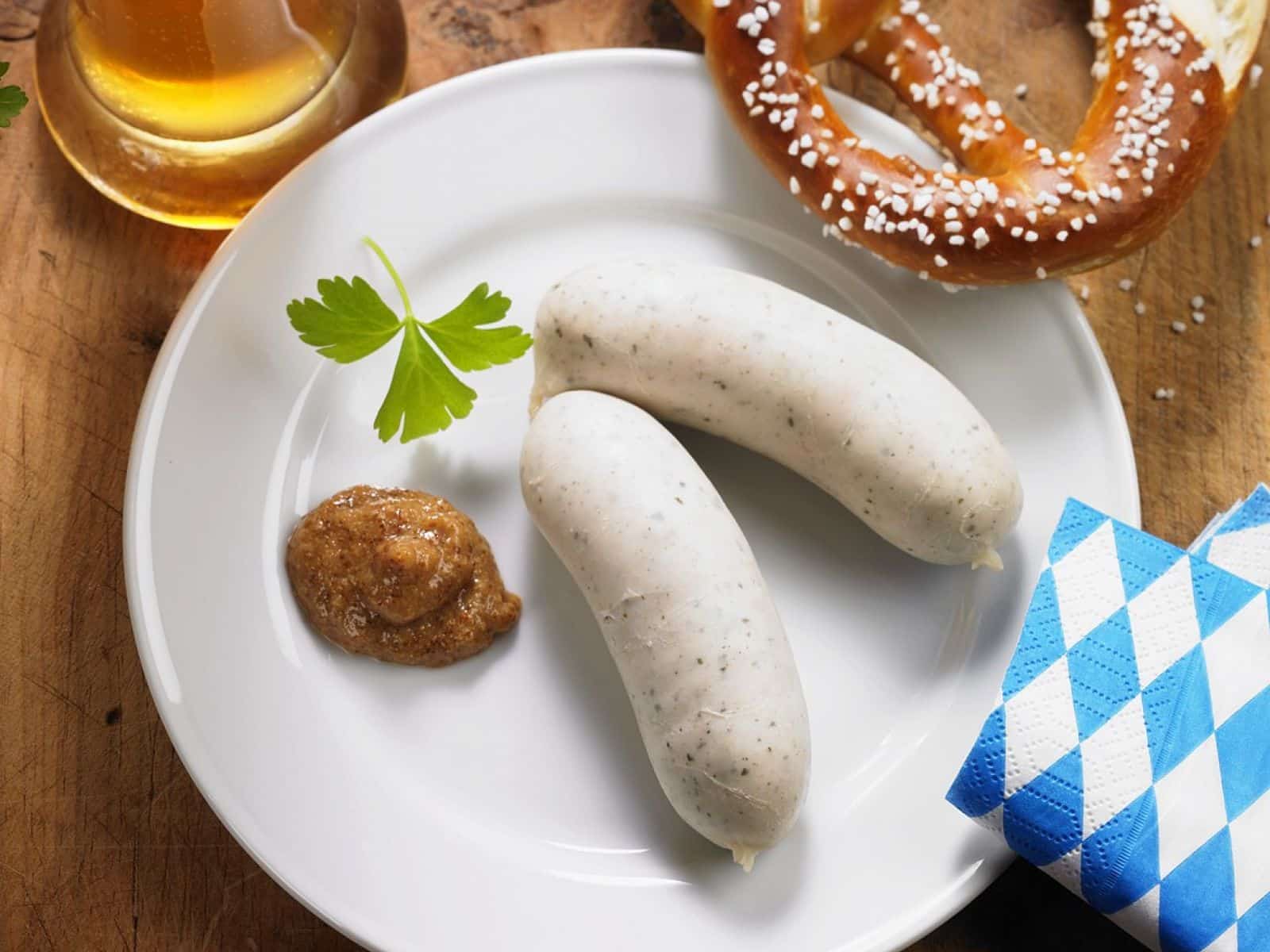
While many non-Germans might have heard of the classical “Currywurst”, which is a fried sausage in a spicy curry sauce, the Bavarian Weißwurst is probably lesser-known. Weißwurst means “white sausage”, which makes sense when looking at it. It is usually just served with some sweet mustard and pretzels. Simple, yet very typical and delicious. Make sure to look out for it when visiting Munich or another place in Bavaria.